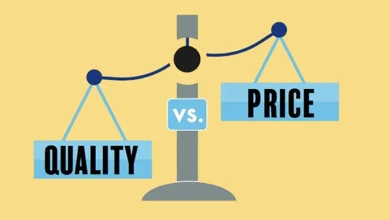Spain Tax Authorities

Spain Tax Authorities is a country that is known for its beautiful landscapes, delicious food, and hospitable people. But what many people don’t know is that Spain also has a thriving tax industry. If you’re based in Spain and are looking to take advantage of the country’s lucrative tax laws, read on for tips on how to do so. From corporation taxes to income taxes, this article has everything you need to know.
What Is The Spain Tax Authorities?
The Spain Tax Authorities is based on a progressive taxation model. In general, the more income an individual earns, the higher the percentage of their income that will be taxed. The Spanish Tax Administration also levies a wealth tax, which is aimed at preventing large fortunes from accumulating in small pockets of society. There are also specific taxes associated with particular activities, such as sales and property taxes.
In addition to personal income taxes, Spain also imposes a value-added tax (VAT), which applies to most goods and services sold in the country. Businesses that export goods or services must account for and pay this tax. Finally, Spain imposes a regional wealth tax in addition to the national wealth tax. This latter levy is designed to target wealthier taxpayers in specific regions of the country.
The Spanish Tax System Overview
The tax advisor spain system overview is a complex and detailed legal framework that requires taxpayers to adhere to specific rules in order to receive the correct tax treatment. In addition, taxpayers are also required to file their Spain Tax Authorities on time in order to avoid penalties and fines. Taxpayers who fail to comply with the Spanish tax system may face significant consequences, including increased taxes and possible criminal prosecution.
The Spanish tax system is based on a number of fundamental principles, including the principle of territoriality, which states that taxes should be levied only within the boundaries of a country. This principle is enforced through a number of mechanisms, such as the use of double taxation treaties and domestic income taxation rules. Spain also maintains a social security system that provides benefits to citizens regardless of their income level.
Spanish tax laws are quite complicated, and taxpayers are required to adhere to a number of specific rules in order to receive the correct tax treatment. In addition, taxpayers are also required to file their taxes on time in order avoid penalties and fines. If taxpayers fail to comply with the Spanish tax system they may face significant consequences, including increased taxes and possible criminal prosecution.
Types Of Taxes in Spain
In Spain, there are three main types of taxes: income tax, value-added tax (VAT) and corporation tax. Income tax is levied on the income of individuals and corporate entities, while VAT is levied on the sale of goods and services. Corporation tax is a tax on the profits of companies.
Taxation Of Income
In Spain, the taxation of income falls into three main categories: personal income tax, corporate tax and estate tax. Each category has its own set of Spain Tax Authorities and penalties that must be paid by taxpayers.
Personal Income Tax in Spain refers to the taxes levied on earnings derived from work carried out in Spain. The main personal income tax rate in Spain is 33%. Other rates apply to specific types of income, such as capital gains or dividends. There are also a number of special deductions and credits available that can reduce taxable income.
Corporate Tax in Spain refers to the taxes payable by companies based in Spain. The main corporate tax rate in Spain is 30%. Additional rates apply to profits generated from certain activities, such as commercial activity or the exploitation of natural resources. Companies must also pay an annual charge for operating expenses.
Estate Tax in Spain refers to the Spain Tax Authorities payable on the net value of assets owned by individuals when they die. These assets can include property, cash holdings, shares and other financial investments. The estate tax in Spain ranges from 0% (for assets worth less than €40,000) to 45% (for assets worth more than €2 million).

Taxation Of Property
Property in Spain is taxed in a variety of ways, depending on the property’s use and value. Generally speaking, real estate is taxed at a lower rate than other types of property. Inheritable property, such as estates and businesses, is also taxed at different rates. Taxation of property can be complicated, so if you’re considering buying or selling property in Spain, be sure to consult with a tax advisor.
The rise of the Female Delusion Calculator has been a phenomenon in recent years. This online tool has gained immense popularity due to its origins and unique functionality. Originating from the growing awareness around the gender pay gap and other gender-related disparities, the Female Delusion Calculator aims to shed light on the delusions that women may have about their own achievements and capabilities.
Social Security And Other Benefits In Spain
In Spain, social security benefits are generally awarded in the following order: old age pension, disability pension, family allowance, and child benefit. In addition, workers may be eligible for other types of social security benefits, including unemployment insurance, maternity leave, and private health insurance.
The main sources of income that are used to calculate social security benefits in Spain are wages and salaries paid by employers. Social Security contributions made by employees are also taken into account. Payments made towards social security benefits are subject to tax obligations in Spain. In addition, social security benefits are taxable when they are received as direct cash payments or when they form part of an inheritance.
Social security benefits in Spain can be received in the form of a lump sum payment or as periodic payments. Lump sum payments intended to cover the entire period during which the beneficiary is entitled to receive social security benefits must be rounded off to the nearest euro cent. Periodic payments must be rounded off to the nearest five euros.
As of January 1, 2017, the maximum amount that an individual can receive as a single monthly payment from Spanish social security schemes is 860 Euros (approximately $1,020). The maximum total payment that an individual can receive in a calendar year from all Spanish social security schemes is 48,200 Euros (approximately $58,000).
There is no limit on how many times an individual can receive social security benefits within a given year. However, any consecutive receipt of benefits
computer repair near me
Apple MacBook Repair Service
Laptop Hardware Repairs




